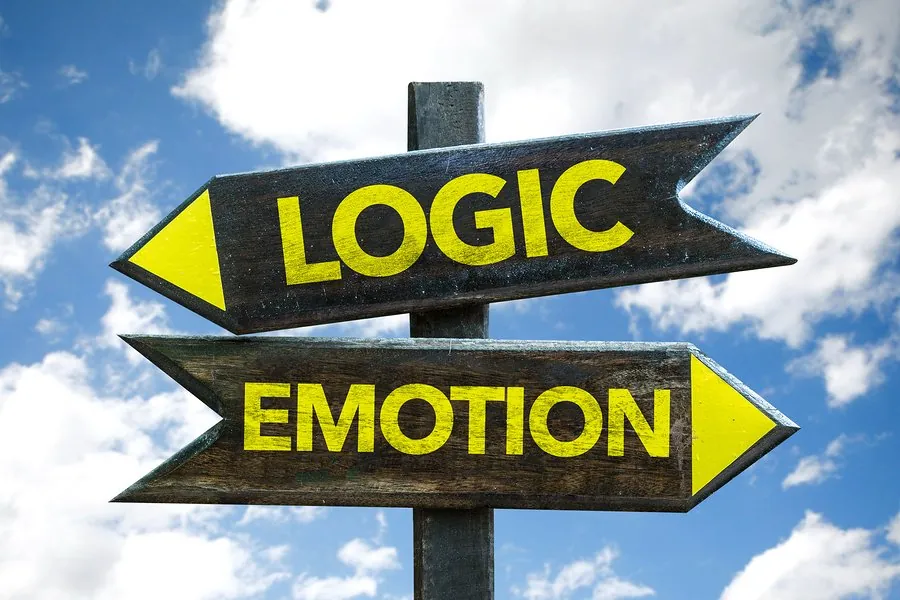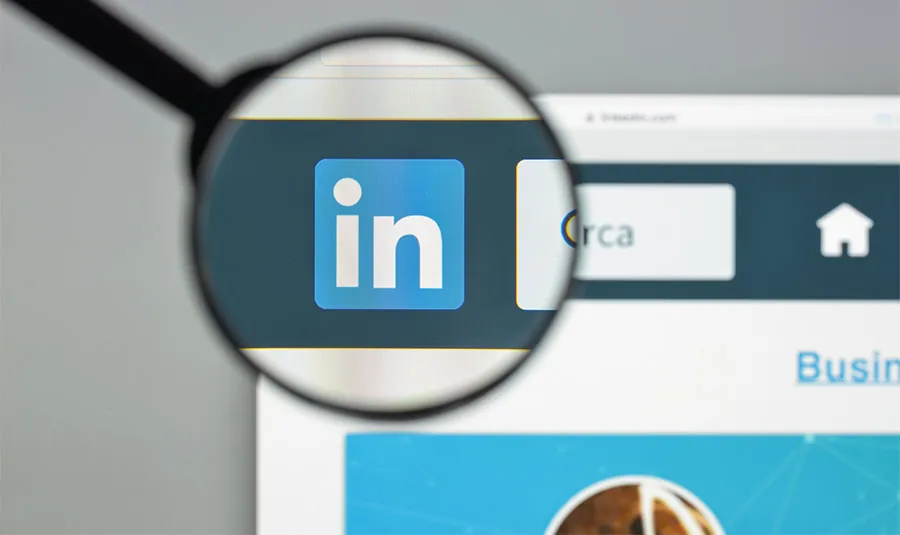The Emotional Vs Logical Quandary in Sales

Ask 10 different sales professionals whether it’s better to sell a customer on logic or emotion, and most of them will probably say you need to use both. But Gerald Zaltman, professor at Harvard Business School, notes that 95% of our buying decisions are done subconsciously, and there’s near-unanimous consensus among neuroscientists that our rational mind plays a comparatively small part in our decision-making process. Yet, as Michael Harris observes, our sales messages heavily emphasize the logical aspects and give shorter shrift to playing on emotions.
On the surface, this fact-based approach seems to make sense. After all, humans are rational actors – or at least that’s been the basis for our identity dating back to Plato. However, as Nelson Cowan wrote in a 2001 study, the conscious mind can only process 4 pieces of information at any one time – thereby leaving it to the subconscious to pick up the rest of the slack – hence where long-term memory resides.
Simple Products as Rational Sales, Complex Products as Emotional Sales?
A succinct way to put it might be the adage that we buy on emotion, then justify it after the fact with logic (whether legitimate or contrived). Harris proposes a split process – whereby simple products are sold rationally and complex products are sold emotionally. It’s an interesting approach – one that would certainly explain why expensive products such as cars and homes are often sold through emotional events such as test drives and showings respectively (to the point where one of the first pieces of advice buyers are told is to not get caught in an emotional attachment). The tactile experience of operating the vehicle and the visionary projection of the future house space are powerful stimulants, energizing the urge to buy.
This same principle also applies to the printed word. For the past couple decades now, predictions have dominated that ebooks and audiobooks will destroy the physical book market. And yet, numerous media outlets reported in the spring of last year that ebook sales dropped, while physical books surged, corresponding with the Pew Research Center’s finding that 65% of Americans read a printed book in 2016-17, compared to just 28% who read an e-book. There’s a lot more to unpack there for another time, as the independent bookstore is a fascinating industry case study worth examining.
To return to the original question – is Harris’s suggestion the ideal one? To a certain degree, yes – remember, our conscious mind is only able to handle 4 items of information at a time. Therefore, when you have a product that has limited primary factors involved in selling, sticking to sales’ general preferred method of logical selling makes, well, logical sense.
With more involved offerings, there’s a lot more than 4 pieces of information, and analysis paralysis can kick in, grounding a sales process (one of many reasons why more complex products and services tend to have longer sales cycles and processes). So while some element of logic and facts/figures still comes into play in those situations, the emotions should be catered to.
Selling Emotionally
The question then becomes, “How do I sell emotionally if I don’t have a product that most people think of being attached to emotionally?” It’s a great question, and the answer is that it comes down to being able to tell a story and craft a narrative around how your solution fills a need or solves a problem that the customer has.
We see this all the time in advertising, and it’s a principle we used when we came up with the tagline “Our Training, Your Success” in a recent campaign. In four short words, we conveyed the idea that our sales training will translate into your success on an individual, team, and organization level (success naturally being unique to each situation and the goals you yourself have).
A way to have this connect with the necessary logical components of a selling process is by being a Trusted Advisor – helping the informed buyer (remember, 65% of the way through the buying process before they even start talking to you) make sense of the information they’ve gathered and researched, cutting through the noise of that great mass of facts and drilling down to focus on the essential and most important aspects for the customer’s problem(s).
Contextualization and narrowing down the pieces of information is a hybrid way of using both emotional and logical selling. It’s based on facts and research (logical), but also allows the customer to see what matters most and how those key principles connect to solving the problem they’re trying to address through their purchase (emotional).
Admittedly, it’s not easy to break out of the mindset of all rational, all the time. It’s the principle that sales professionals have either consciously or subconsciously (pardon the irony-tinged pun there) absorbed as the optimal way of selling. Yet, when we free ourselves of that limiting mindset and start to see the potential inherent in also utilizing emotional selling – particularly for complex products involving a lot of factors that could lead to information overload – we begin to unleash our true sales potential.

- Account Planning (11)
- Awards (50)
- Client Testimonial (37)
- Personal Branding (19)
- Podcast (11)
- Research (68)
- Sales Career Development (85)
- Sales Coaching (153)
- Sales Consulting (133)
- Sales Culture (164)
- Sales Enablement (340)
- Sales Leadership (108)
- Sales Management (242)
- Sales Negotiation (16)
- Sales Prospecting (124)
- Sales Role-Playing (18)
- Sales Training (229)
- Selling Strategies (255)
- Soft Skills (67)
- Talent Management (92)
- Trusted Advisor (27)
- Virtual Selling (41)
- Webinar (10)





























